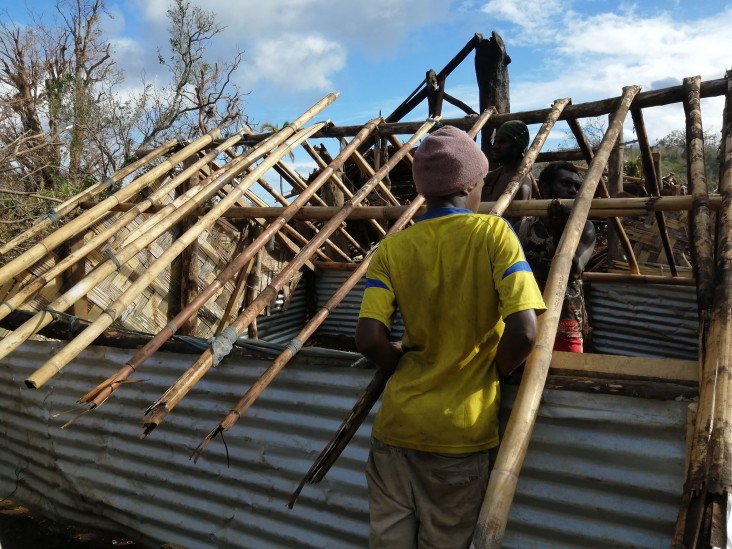You are viewing:
Archived Content
Information released online before January, 2021.
You are viewing:
Information released online before January, 2021.
Note: Content in this archive site is NOT UPDATED, and external links may not function. External links to other Internet sites should not be construed as an endorsement of the views contained therein.
You are entering the 2017-2020 Archive for the
United States Agency for International Development web site.
If you are looking for current information, visit www.usaid.gov.

The U.S. government, through USAID, is providing an additional $750,000 to help communities affected by Tropical Cyclone (TC) Harold. This brings the total U.S. government assistance to support TC Harold response efforts in the Pacific Islands to $1,150,000.
On April 6, Tropical Cyclone Harold made initial landfall over Vanuatu’s Espiritu Santo Island and made secondary landfall over the country’s Malo and Pentecost islands. The storm resulted in heavy rains, flooding, power outages, and wind damage across Vanuatu’s northern provinces of Malampa, Pelama, Sanma, and Torba.
USAID assistance will provide building materials and training to help 1,000 households build safe and resilient homes. This support will build upon previous U.S. government efforts to help families displaced by TC Harold, including provision of emergency relief commodities and shelter assistance to vulnerable populations.
“The American people stand in solidarity with the people of Vanuatu who were severely affected by Tropical Cyclone Harold,” Ambassador Erin McKee said. “The U.S. government will continue to support local and international efforts to help communities build back better from this disaster.”
In April, USAID provided $400,000 to Vanuatu, Solomon Islands, Fiji and Tonga to meet immediate emergency needs. In Vanuatu, USAID distributed urgently needed relief items including water, hygiene supplies, and tarpaulins for shelter needs.
USAID has long-standing programs that work with Pacific Island countries to prepare for, and respond to, extreme weather events and other natural disasters. In Vanuatu, USAID activities increase the resilience of vulnerable communities and enhance the capacity partners to prepare for disasters, mobilize and train volunteers, and support community disaster response committees.
Comment
Make a general inquiry or suggest an improvement.